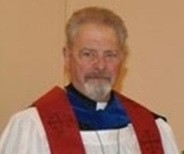 You would think, given the Mission of the Christian Church, that the discovery of the “New World” of the Americas would have caused a great groundswell of missionary activity on the part of Christians everywhere, but especially in Europe. Now, it’s true that despite the “Great Commission”, there have been peaks and valleys of missionary activity during the past two thousand years, but the Americas would seem to have offered the opportunity of a lifetime to all sorts of Church leaders: after all, here were two Continents full of heathens, just waiting to be made converts! And, in fact, the Roman Catholic Church, or at least several of its priestly orders did view it that way, but the Church hierarchy did not, and many Churchmen, lay and clergy, didn’t, either. One wonders, “Why not?”
You would think, given the Mission of the Christian Church, that the discovery of the “New World” of the Americas would have caused a great groundswell of missionary activity on the part of Christians everywhere, but especially in Europe. Now, it’s true that despite the “Great Commission”, there have been peaks and valleys of missionary activity during the past two thousand years, but the Americas would seem to have offered the opportunity of a lifetime to all sorts of Church leaders: after all, here were two Continents full of heathens, just waiting to be made converts! And, in fact, the Roman Catholic Church, or at least several of its priestly orders did view it that way, but the Church hierarchy did not, and many Churchmen, lay and clergy, didn’t, either. One wonders, “Why not?”
One answer, a pretty convincing one, is that the Church, at the user level in Europe, was deeply involved in another activity altogether: The Reformation. The reformation of the Western, or Roman Church simply took up all the energy that the millions of Germans, Scandinavians, English (including Scots and Irishmen), and a good many Dutch and French had to offer. They had little interest in the souls of the Indians because they were deeply involved in a struggle to define the role of the Church in their own daily lives.
The late Medieval Church was tottering. The Crusades had bled it dry; the emerging nationalism of France and Spain had sapped its treasuries, and the excesses of the Inquisition had given it a bad reputation almost everywhere. Then in the 1300s, there was turmoil at the top, with one Pope sitting in France, another in Italy, and, for a while, yet another who couldn’t make up his mind where he wanted to be. St. Peters, a venerable old basilica in Rome, and the titular “home” of the Church, was falling down (it was, after all, more than half a Century years old) and needed rebuilding. Fundraising had become the major activity of the Popes, and much of it was indescribably corrupt and seedy. First, Masses were sold, and then salvation, itself. The office of Bishop was for sale to the highest bidder, and Bishops themselves often sold ordination to the Priesthood. Everything was about money, and money, as we all know, corrupts whatever it touches. In 1517, an obscure, but devout German college professor and priest challenged Vatican partisans to a debate over some of the abuses. Martin Luther was his name, and with Luther, the Reformation exploded onto the European scene.